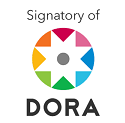Ethical challenges in the integration of emerging technologies in financial auditing
Abstract
The integration of emerging technologies in financial auditing poses significant ethical challenges that impact the actions of auditors. This study set out to analyze these challenges in order to provide a comprehensive view of the subject. A non-experimental methodology based on a documentary review in indexed databases was used. The results highlight challenges such as the impact on professional judgment, the need for constant updating of skills, transparency in financial reporting and compliance with ethical and legal regulations. It is concluded that auditors should receive continuous training in new technologies and ethics, establish clear ethical standards, encourage transparency in the use of emerging technologies, and collaborate with regulators and professional bodies to ensure regulatory and ethical compliance.
Downloads
References
Argañaraz, A., Mazzuchelli, A., Daima, L., y López, M. (2021). Impacto del blockchain en la contabilidad y auditoría [Impact of blockchain on accounting and auditing]. Ejes De Economía Y Sociedad, 347-371. https://doi.org/10.33255/25914669/604
Flores, Y., y Fuentealba, S. (2020). Analizar el rol del auditor interno frente a las tecnologías emergentes [Analyze the role of the internal auditor in the face of emerging technologies]. (Trabajo de grado). Concepcion, Chile: Universidad del Bio-Bio. https://n9.cl/9c48z5
López, M., Albanese, D., y Durán, R. (2014). Auditoría financiera en entornos de computación en la nube: Revisión del Estado de Arte [Financial Auditing in Cloud Computing Environments: A State of the Art Review]. Escritos Contables y de Administración, 109-147. https://doi.org/10.52292/j.eca.2013.291
Moll, J., y Yigitbasioglu, O. (2019). El papel de las tecnologías relacionadas con Internet en la configuración del trabajo de los contadores: nuevas direcciones para la investigación contable [The role of Internet-related technologies in shaping the work of accountants: new directions for accounting research]. La revisión contable británica. https://doi.org/10.1016/j.bar.2019.04.002
Montes, C., y Vallejo, C. (2021). Auditoría financiera: Papeles de trabajo según NIIF NIA [Financial auditing: Working papers according to IFRS ISAs]. Colombia: Alpha Editorial S.A. https://n9.cl/aotij
Ocampo, C. (2023). Cuarta Revolución Industrial y Contaduría Pública: oportunidades y desafíos [Fourth Industrial Revolution and Public Accounting: Opportunities and Challenges]. Contaduría Universidad De Antioquia, 9-12. https://n9.cl/yl80d
Pires, C., González, R., y Ruiz, R. (2021). Las tecnologías emergentes y la transformación digital: aliados para la Auditoría en América del Sur [Emerging technologies and digital transformation: allies for auditing in South America]. KPMG Business Insights América del Sur Auditoría en América del Sur, 1-3. https://n9.cl/8ukcb
Plastino, M., Marchiano, L., Michelini , M., Taglialegne, N., y Vieira, Y. (2022). El impacto de las nuevas tecnologías en el perfil del auditor [The impact of new technologies on the auditor's profile]. En C. Rumitti, L. Martiries, y M. Migoya (Eds.). Auditoría en el siglo XXI: el impacto de las nuevas tecnologías y del desarrollo económico (págs. 80-115). Argentina: Editorial de la Universidad Nacional de La Plata. https://n9.cl/c529s
Riaño, A., Moyano, E., y Pulido, L. (2023). Impacto de las nuevas herramientas tecnológicas frente a las funciones y responsabilidades del ejercicio de la profesión contable en Colombia [Impact of new technological tools on the functions and responsibilities of the accounting profession in Colombia]. Universidad Cooperativa de Colombia, Facultad de Ciencias Económicas, Administrativas y Contables, Contaduría Pública, Bogotá, Colombia. https://hdl.handle.net/20.500.12494/53515
Russo, C., Sarobe, M., Adó, M., Ahmad, T., Alonso, N., Alvarez, E., . . . Charne, J. (2017). Informática y Tecnologías Emergentes [Emergent informatic and techonologies]. XIX Workshop de Investigadores en Ciencias de la Computación (págs. 819-823). Buenos Aires: Instituto Tecnológico de Buenos Aires (ITBA). https://n9.cl/yctxb5
Socha, M., Rodríguez, C., Joya, A., Camargo, F., y Quintero, M. (2019). Transformación digital [Digital transformation]. KPMG MGZN, (4). https://n9.cl/jc4hn
Copyright (c) 2024 Erika Andrea Rosales-Troya, Yanice Licenia Ordóñez-Parra

This work is licensed under a Creative Commons Attribution-NonCommercial-ShareAlike 4.0 International License.
CC BY-NC-SA : Esta licencia permite a los reutilizadores distribuir, remezclar, adaptar y construir sobre el material en cualquier medio o formato solo con fines no comerciales, y solo siempre y cuando se dé la atribución al creador. Si remezcla, adapta o construye sobre el material, debe licenciar el material modificado bajo términos idénticos.
URL de OAI-PMH: https://iieakoinonia.org/ojs3/index.php/gestioep/oai














